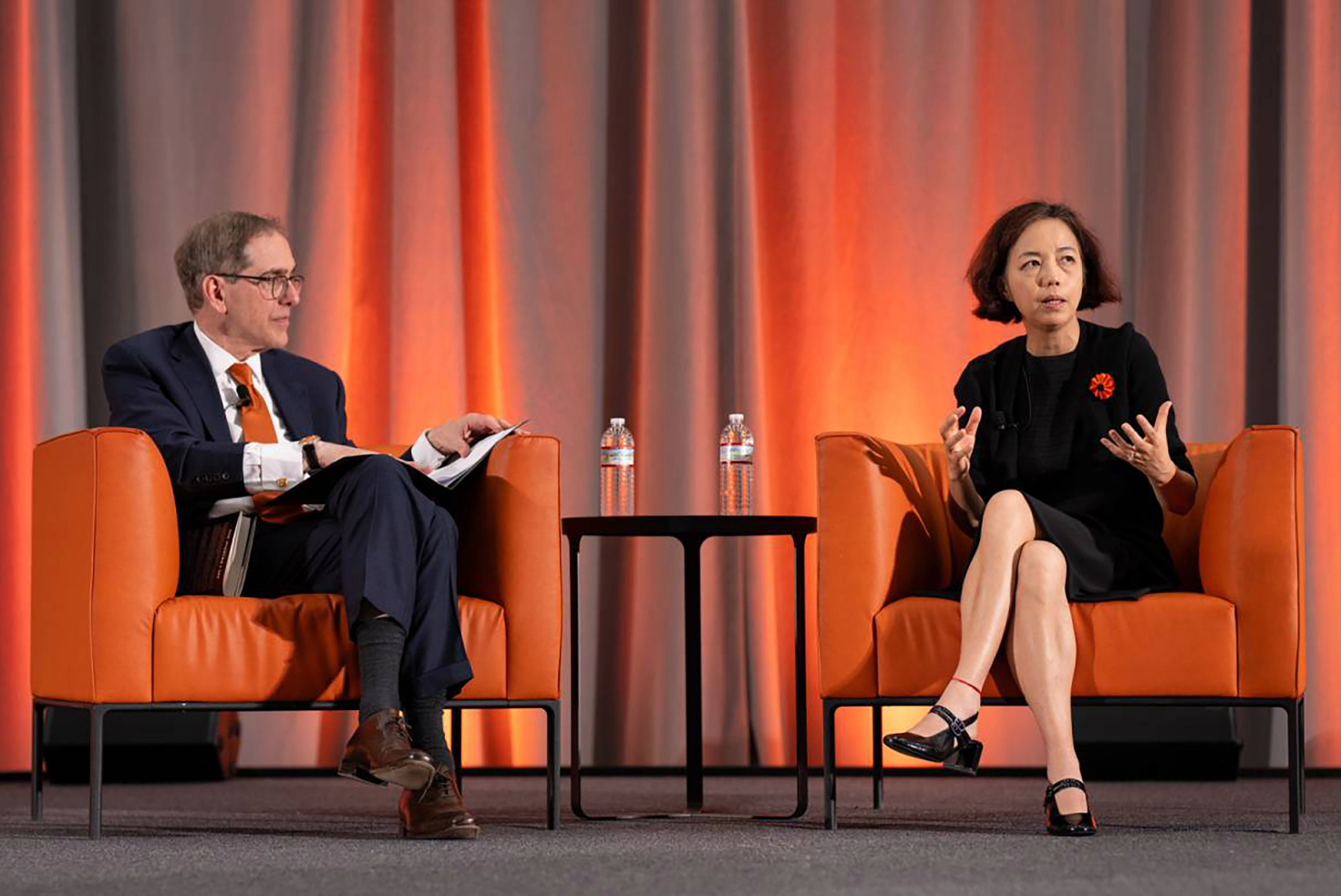
The Queen Elizabeth Prize for Engineering—a “global prize in technological innovation” has honored two of the greatest influences in the field of artificial intelligence. John Hopfield and Fei-Fei Li, both having significant connections to Princeton University, were recognized in London for their pioneering work on machine learning and computer vision.
The winner, announced at the Science Museum and presented by Princess Anne, honors achievements that have made real support and progress in society. And, in the world of AI, few people are better known than John Hopfield and Fei-Fei Li. Their work has laid down the building blocks of today’s so-called modern AI and impacts more or less over everything in the space including deep learning and autonomous systems.
“Together, the work of these engineers has laid the foundations for the machine learning that lies behind many of the most exciting innovations shaping the world today,” the award announcement stated.
From self-driving cars to personalized medicine, today’s most advanced technologies owe their success to the groundbreaking research pioneered by these AI trailblazers.
Before AI became a Silicon Valley buzzword, John Hopfield was already laying the groundwork for one of its most critical components—neural networks. A physicist by training, Hopfield approached AI from an unconventional angle. His most famous contribution, the Hopfield Network, introduced a new way of thinking about artificial neural networks, showing that they could be used to solve complex optimization problems.
His influence didn’t stop there. John Hopfield’s research bridged physics, biology, and neuroscience, creating a blueprint for the deep learning revolution that would come decades later. His work directly influenced three of his fellow QEPrize recipients—Yoshua Bengio, Yann LeCun, and Geoffrey Hinton—who are often credited as the “godfathers of deep learning.” The four were also co-recipients of the 2024 Nobel Prize in Physics for their foundational research in AI.
Neural networks are now everywhere. They power Google Search, recommend what you watch on Netflix, and enable self-driving cars to “see” the road. Hopfield’s early ideas laid the conceptual framework for these advances, proving that AI could be modeled after the human brain.
If John Hopfield helped AI think, Fei-Fei Li helped it see. Recognizing that AI was only as good as the data it learned from, Li built one of the most important datasets in history—ImageNet.
At a time when AI struggled with basic image recognition, Li believed that machine learning models needed vast amounts of labeled data to improve. She and her team at Princeton painstakingly built ImageNet, a dataset containing millions of labeled images that revolutionized the field of computer vision. The project became the gold standard for training AI models and led to the ImageNet Large Scale Visual Recognition Challenge (ILSVRC), an annual competition that pushed AI capabilities forward.
“By creating ImageNet, a large-scale image database used for object recognition software research, she enabled access to millions of labeled images that have been instrumental in training and evaluating computer vision algorithms,” the award announcement stated.
Without ImageNet, today’s AI breakthroughs in facial recognition, medical imaging, and autonomous driving would not be where they are. The dataset was a turning point, proving that deep learning models could outperform traditional computer vision techniques when trained on large amounts of data.
Fei-Fei Li, now the Sequoia Capital Professor in Computer Science at Stanford and co-director of the Stanford Institute for Human-Centered AI, has also been a leading voice in the ethical development of artificial intelligence. She has pushed for AI that is not only powerful but also responsible, ensuring that technology serves humanity rather than just corporations.
Her story is detailed in her memoir, The Worlds I See: Curiosity, Exploration, and Discovery at the Dawn of AI, where she chronicles the journey of building ImageNet and shaping the future of AI.
The Queen Elizabeth Prize for Engineering has traditionally honored innovations like the internet, GPS, and medical imaging. AI is now firmly in that category. The work of John Hopfield and Fei-Fei Li, along with their co-recipients, has fundamentally changed industries ranging from healthcare to finance, from robotics to entertainment.
By awarding these pioneers, the QEPrize Foundation is recognizing that AI is not just a tool—it’s an engineering revolution. One that is shaping the way we live, work, and interact with technology.
For the AI community, this award is more than just an honor. It’s a signal that the world is finally acknowledging the deep, technical breakthroughs that have made AI possible. With Hopfield’s foundational theories and Fei-Fei Li’s transformative datasets, the future of AI looks more promising than ever.
Share this article: